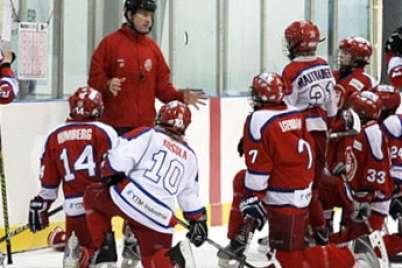
Raising a happy, healthy, successful kid
I wear many hats in my life but at my core I’m always dad; a father who has hopes and dreams for my children. Their health, happiness and success are always front and center in my mind.
I’m not alone. We all want our kids to be happy, healthy and successful. But how do we know we are doing the best for our children? It can be daunting.
This sparked a key question for us: How can we make the complex task of raising happy, healthy, and successful kids simpler for parents? The topic has generated many great discussions at Active for Life.
Skills, skills, skills
In his book The Talent Code, author Daniel Coyle coins the phrase, “Greatness is not born, it’s made”. What he says is that greatness in any arena like school, music, sport and others, is an outcome of learning and practicing skills. In making this statement, Coyle is reflecting the current understanding in talent development around the world.
Major researchers agree that the genetics of a child play a role, but they are only a starting place. People are born with characteristics that could pre-dispose them for certain activities. A kid who stands six-foot-four might be better at basketball than gymnastics. But there is no such thing as a natural-born athlete.
In sport and other endeavors, skills need to be learned, and they can be improved through deliberate practice. With the right skills and practice comes success.
Four areas of skills development for success
If you look at it from the perspective of skill development, the task of raising happy, healthy and successful kids becomes easier to grasp. We’ve identified four skill areas that can be enhanced with deliberate practice: cognitive, social, emotional and physical.
The importance of acquiring solid cognitive, social and emotional skills is well established. Having a good education, being emotionally balanced and able to interact with others in a constructive and positive way are essential to success. These areas of development are something that parents appreciate as being important for their child’s well being.
But while parents might agree that physical activity is important, many have yet to appreciate that it can affect much more than their child’s health.
What parents might not know is that kids who get regular physical activity and play sport, are not only healthier, but also get better grades, are better adjusted emotionally and have better social skills.
In other words, physical skills can be a multiplier for all the other skills your kids need to be successful. A child who is running and jumping and physically competent is also better cognitively, socially and emotionally.
Creating a movement
There are already many advocates and resources for the proper development of kids’ cognitive, social and emotional skills. Our mission at Active for Life is to help you develop your child’s physical skills and physical literacy so they can live complete lives.
The time has come for Canadian parents to know and share with others the fact that physically-literate children are better suited to handle any challenge they face in life.
It’s time for parents to teach their kids simple skills early, and it’s time to get our kids moving more and better at school.
Physical literacy is good for each individual child, but it’s also a gift to our future generations if we all make it a focus and priority now.
This is my dream for my children and yours: a generation of successful, dynamic and happy people who need less health care to live full lives.
Will you join us in making this dream a reality?






My children are relatively successful track athletes. At a local and county level they tend to win races. At school before I trained them they won races. However, at a national level there are 10 children of their own age who would wipe the floor with them, despite my children doing daily, well planned training.
It is a nonsense to say there are no natural born athletes because there are. Whereas, my children train 5 days per week and are very dedicated to improving, there are children to go to an athletics club twice a week and have a jog at the weekend who could beat my children convincingly just because they are genetically more suited to that sport. Admittedly some of those children might simply be slightly older or more developed, but a few are clearly genetic outliers and it is those sorts of people who make national squads and qualify for the Olympics.
I’ve therefore encouraged them once they win the major county prize within a population of say 1-3 million, to think about switching sports and learning something new. Take that aerobic fitness and switch to rowing or canoeing or Triathlon. When they peak at that switch again and thus live a rich and varied life.
When I look back at my own sports career the greatest pleasure was not the county or national events but beating my school friends in competitions and being a valued member of a sports team. Given the sacrifices necessary now to reach the top of most sports, the cheating with drugs, the injury from overtraining, I believe it is a much more sensible goal to be an all round sporting success at school and in your young adult life so that you can play tennis, golf, archery, table tennis, ski, run, cycle, swim all to a decent standard.
It makes a lot more sense to me than trying to master one sport unless you happen to be a genetic freak.
When we suggest that there are no “natural born athletes”, Greg, we’re not suggesting that there isn’t such a thing as a child who is predisposed to do well in a sport.
Natural, genetic factors can predispose a child to be better in a particular sport. A child who grows to a height of seven feet might make a good basketball player. But there are plenty of tall individuals that aren’t good at basketball because they can’t dribble. And then there’s Steve Nash, who is listed at 6’3″, but is probably closer to 6′.
“Training trumps talent, until talent trains,” is the phrase popular among sport scientists.
Great information and well designed for Max impact